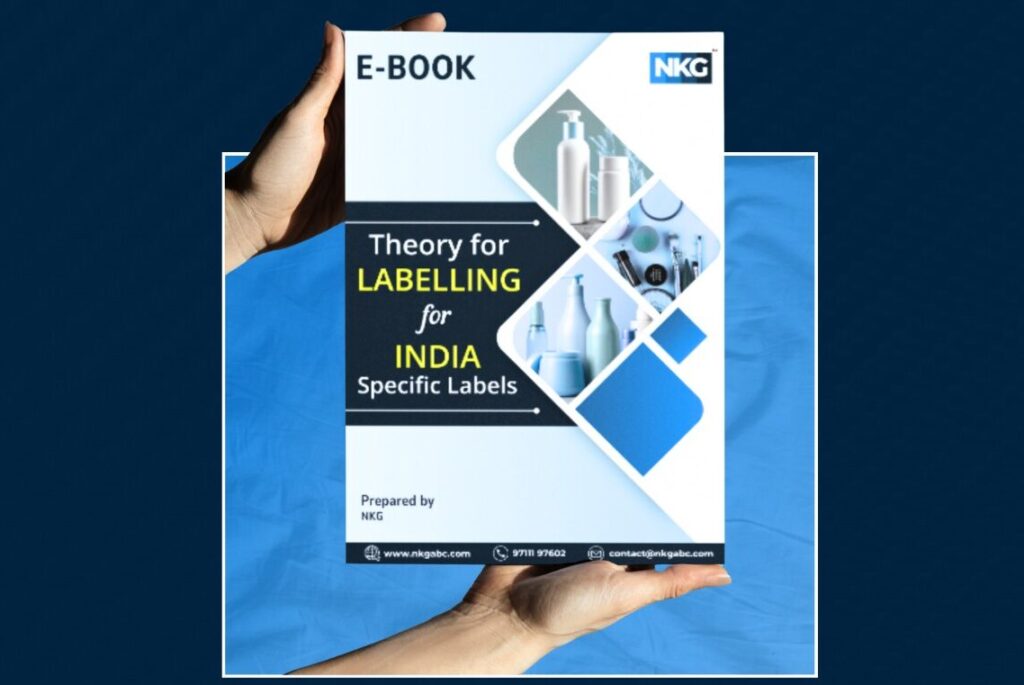Introduction:
In the ever-changing world of food and nutrition, the concept of functional foods has emerged as a game changer, providing consumers with a unique opportunity to incorporate health-promoting components into their daily diets. In addition to being nourishing, these food products may also offer specific advantages over and above basic nourishment. To guarantee their safety and effectiveness, functional foods must pass a strict review process due to their uniqueness, which ultimately protects the health of consumers.
The Food Safety and Standards Authority of India (FSSAI), a statutory body under the Ministry of Health and Family Welfare, Government of India, plays a pivotal role in regulating the food industry. Established under the Food Safety and Standards Act, 2006 (FSSA, 2006), the FSSAI is responsible for laying down science-based standards for food articles and overseeing their manufacture, storage, distribution, sale, and import. This regulatory body ensures the availability of safe and wholesome food for human consumption while ensuring that Food Business Operators (FBOs) adhere to the guidelines outlined in the FSS Act and regulations.
In recognition of the growing importance of functional foods and the need for a comprehensive regulatory framework, the FSSAI introduced the Food Safety and Standards (Approval for Non-Specified Food and Food Ingredients) Regulations, 2017. These regulations served as a guiding framework for regulating novel food products and ingredients. However, acknowledging the dynamic nature of the industry and the need for continuous improvement, the FSSAI amended these regulations on October 11, 2022, resulting in the Food Safety and Standards (Approval for Non-Specified Food and Food Ingredients) First Amendment Regulations, 2022.
This amendment represents a significant step forward in refining and enhancing the regulatory landscape governing novel food items in India. The regulations encompass a wide range of food and food ingredients, including novel foods or novel food ingredients processed using novel technologies, new additives, new processing aids (including enzymes), non-specified foods (such as new botanicals, new fruit or fruit-based products, probiotics, prebiotics, and other novel foods), and functional foods.
To ensure the safety and efficacy of these non-specified food products, the FSSAI has established a comprehensive assessment process outlined in Annexure 1 of the regulations. This assessment involves a thorough evaluation of in vitro data, safety studies, and, where applicable, efficacy studies.
In Vitro Data Evaluation:
The first step in the assessment process involves a detailed examination of in vitro data. This includes a description of the tested material, including its purity, standardisation, marker compounds examined, and the specific activity evaluated.
For biological or botanical materials, the assessment requires information on the National Type Culture Collection Centre, Account Number, cell line details, organ or tissue culture details, or any other relevant system used in the testing process.
Additionally, the assessment requires information on the concentrations tested, as well as the positive and negative controls employed in the studies. The elements measured as outcomes, such as cytotoxicity, IC50, dye uptake or decrease in dye uptake, and growth rate prevention, must be clearly described. A brief overview of the outcomes, including a comparison to the controls and any reported dose-response relationships, is essential.
Furthermore, a thorough reference to the published work, including details about the laboratory or institute conducting the study, its accreditation status, and the location of the study, is required. If the data is not published in peer-reviewed journals but is part of a study report, an authenticated copy of the report must be provided. The applicant must also be prepared to provide full paper copies of the most significant studies upon request.
Safety Studies:
The safety assessment is a critical component of the evaluation process, ensuring that the non-specified food or food ingredient is suitable for regular human consumption. This assessment involves a comprehensive examination of the test material’s purity, including any standardization or marker compounds examined, particularly for botanicals, biological materials, food additives, and color additives.
The exposure level and test compound profile are crucial considerations in the safety assessment. The intended daily or duration of exposure in humans should serve as the basis for determining the appropriate exposure level for experimental evaluation. The standard body surface area method is employed to determine the test exposure level for the chosen laboratory animal.
Acute Toxicity Studies:
Acute toxicity studies are conducted to assess the toxic effects of the test substance in two animal species (typically mice, rats, or rabbits) exposed to the test compound within 24 hours. The study must demonstrate the safety of the test compound at an exposure limit of 2 g/kg or at least ten times the intended human exposure level and route.
The data collected should include observations on body weight gain, toxic signs, the severity, onset, progression, and reversibility of the signs, as well as any mortality. In the event of death, a necropsy report and histopathology findings must be included.
Long-term Toxicity Studies:
Long-term toxicity studies are conducted to evaluate the toxic effects of the test substance in two animal species (typically mice and rats or rabbits) that are repeatedly exposed to the test compound in accordance with its intended use for human consumption.
These studies must employ three exposure levels: the intended human exposure level (Therapeutic Dose (TD), High (5/10 X TD), Average (2.5/5 X TD), and a vehicle control group. Dose level spacing should be carefully planned to demonstrate a dose-response relationship and establish a no-observed adverse effect level (NOAEL) or other study objectives.
The data collected should include observations on gross necropsy, histopathology, physical, physiological, dietary, weight gain, clinical chemistry, and hematological parameters for major and targeted organs. If an animal dies during the study, a necropsy report and histopathology findings should be included.
Additionally, if the test material has the potential to be allergenic or mutagenic, reports on special investigations must be included in the assessment.
Efficacy Studies:
While the primary focus of the evaluation process is on safety, efficacy studies may also be required for certain functional food products, particularly those making specific health claims. These studies aim to validate the claimed benefits and ensure that consumers receive accurate and substantiated information.
Conclusion:
The safety and efficacy assessment of non-specified functional foods is a crucial step in the regulatory approval process, ensuring that these innovative products meet established safety standards and provide tangible health benefits to consumers. By adhering to rigorous assessment methodologies and regulatory guidelines set forth by the FSSAI, manufacturers can contribute to the development of a safe and innovative functional food market that promotes consumer health and well-being. This comprehensive approach to evaluation not only safeguards public health but also fosters trust and confidence in the functional food industry, enabling consumers to make informed choices and embrace the potential benefits of these novel food products.







